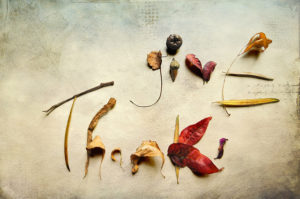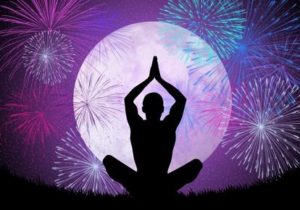Mindful Fatherhood
By John M. de Castro, Ph.D.
“Mindful Fathering is the act of consciously checking into your life as a father. It’s about staying present in your life as a father, observing the dreary, ugly, and painful parts of fathering with acceptance and non-judgement, and honoring those parts with our full attention, just as we honor the wonderful and sublime moments of fatherhood, rather than numbing ourselves out of our lives through substances, technology, or boredom.” – MindfulFathering
Fathers’ Day, like Mother’s Day was basically invented and promoted by the greeting card and florist industries. But, even though its origins were crass, the idea took off, because it hit upon a truth; that most of us love our fathers. As a result, Fathers’ Day has become a culturally accepted and encouraged time for the celebration of fatherhood and all that it means. The deep bonds and love that most people feel for their fathers and their fathers for them fuels the celebration of the holiday.
The holiday is also popular as everyone has a father, who in turn, has had a father, who has had a father, etc. Many are, or want to be fathers. It has and always will, play an immensely important role in our individual and societal existence. The effectiveness, or lack thereof, of fathering has a major impact on the children that continues throughout their lives. It is such an important role that it seems reasonable to explore what goes into successful fathering and child rearing and what might be of assistance in improving fathering. There has accumulated a tremendous amount of scientific evidence that mindfulness, (“awareness that arises through paying attention, on purpose, in the present moment, non-judgmentally”) can be an important asset for fathers. So, on this day celebrating fatherhood, we’ll explore the role of mindfulness.
Mindfulness has been found to be important to becoming a father in the first place. Mindfulness makes the individual more attractive to the opposite sex, it improves sexual relationships, it helps to relieve infertility, and it improves relationships in general. All of which underscores the importance of mindfulness in improving the likelihood that conception will occur and that the infant will be born into a supportive social context. Mindfulness continues after birth to be of assistance as it improves caregiving and parenting, even in the case where the child has developmental disabilities. Mindfulness not only helps the parents deal with the stresses of childrearing, but developing mindfulness in the child can be of great assistance to helping the kids develop emotionally and cognitively, develop high level thinking, develop healthy self-concepts, develop socially, deal with stress, and cope with trauma and childhood depression. It even improves the child’s psychosocial development and academic performance and grades in school. In addition, it seems to be able to assist children through the troubled times of adolescence.
Fathering does not occur in a vacuum. It’s been said that “It takes a village” to rear a child. Indeed, fatherhood is embedded in a community. There are many people who are either directly or indirectly involved, from the mother, to the extended family, the community, the medical profession, teachers, clergy, social workers, childcare workers, and even the government. So relationships become an essential part of fathering from conception, to birth, and family and social life. Mindfulness is important to the father in developing and promoting these social connections that are so important for the child’s development. Mindful people generally connect better and are better liked by others, making them socially much more effective.
Why would mindfulness be such an important component of fatherhood? There are a number of reasons that mindfulness helps. It reduces the psychological and physical effects of stress on the father and let’s face it, raising children can be quite stressful. Mindfulness helps the father maintain his health and well-being, and to recover quicker should he become ill. Mindfulness also improves emotion regulation making the father better able to be in touch with his emotions yet react to them adaptively and effectively. This skill is needed as children are capable of learning how to push all the parents buttons and reacting well is essential to dealing successfully with the child.
With the increasing frequency of divorce and single parent households, the first and most important function of a father is simply to be present for their child. This may take the form of a traditional family, but may also be as the primary custodian, or only during delineated visitations, or there may be shared responsibility with separate households, or as a step-parent. The mindful father takes this role and his responsibilities to the child very seriously and regardless of the living arrangements invests time and resources in the child. Regardless of the circumstances being mindfully involved in the child’s life is crucial. But being present doesn’t just mean being physically present hanging around. Probably the most important thing a father can do is to simply be present with the child, devoting singular attention to the child. It means attending to the children emotionally, listening carefully, and being caring and compassionate.
The essential capacity developed in mindfulness training is paying much greater attention to what’s occurring in the present moment. This can be of immense help to the father. It makes him better attuned to his child’s and to his own needs. It reduces rumination and recriminations about past mistakes. It tends to diminish the worry and anxiety about the future. It helps him to focus on what needs to be done now, making him much more effective. And it helps him to experience the joys of fatherhood to their fullest. In general, by focusing on now, he is tuned into the only time that matters for himself or his child, improving his relationship with reality, dealing with its problems and relishing its wonders.
This is where mindfulness comes in. Mindfulness training promotes paying close attention to what is happening in the present moment. So, when interacting with their children a mindful father is truly present for them and not thinking about other things. Mindfulness promotes careful attentive listening. One of the most important things a child wants is to be truly heard. That is the gift of a mindful father. Mindfulness also promotes compassion, being aware of the emotional state of another. This is also important for a child. Childhood can be difficult and being in touch with a child’s moods is an important part of effective fathering. Mindfulness also develops the ability to closely observe without judging the child. This is immensely important for the development of the child’s self-concept and for the flowering of experimentation and creativity. Yes, children need direction, but too much judging can cause harm. So, observing the child with non-judgmental awareness is important for children flourishing.
Hence, mindfulness can make fathering better, both for the father, and the child. So, on this important day of celebration of fathers, let’s adopt mindfulness and make it a part of our relationship with our fathers and our children. Most of us love our fathers but we love mindful fathers even more especially when we ourselves are mindful.
“But mindfulness is really about being the best parent you can be. When we are mindful, we think about what we are doing and why we are doing it. If we are grounded in principles, it is easier to be more aware of what is happening at the moment and to be more observant. Connecting with the deep reasons why we chose to be a parent can help us see what is going on in a clearer light.” – Wayne Parker
CMCS – Center for Mindfulness and Contemplative Studies
This and other Contemplative Studies posts are also available on Google+ https://plus.google.com/106784388191201299496/posts and on Twitter @MindfulResearch









